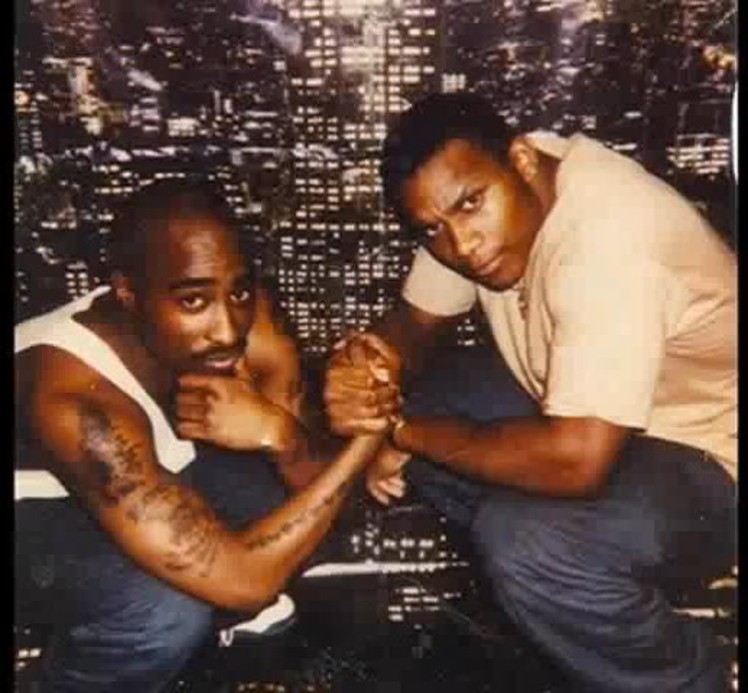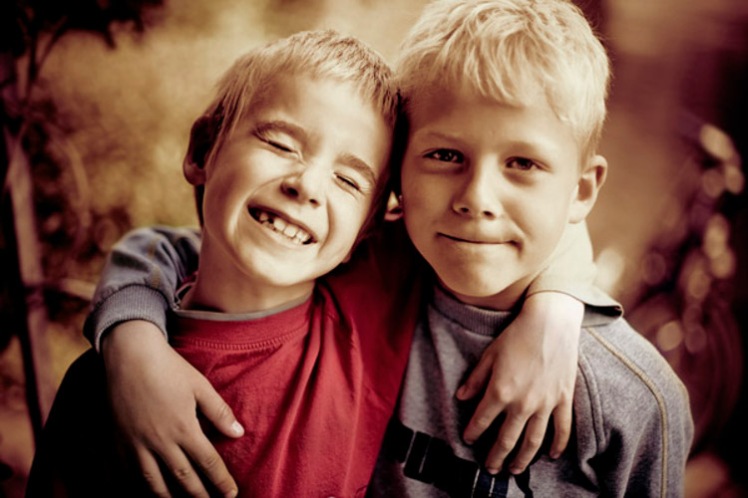This is an essay about how we describe, or try to, emotions and feelings such as love, and so is bound to be inexact, even obscure. I’m sorry about that.
Affection
Affection is the wrapper word that enfolds all the other words for feelings, because it means ‘to affect’, influence, even disturb, others. It highlights something important about emotions, that they are contagious, and our feelings can alter the emotional state of those around us. We often don’t convince others by our reasoned arguments, but we laugh most of the time because others laugh, we cry more easily when others are moved, we get excited when the group members start shouting, we panic when the crowd goes wild. The word had a pejorative meaning for the Romans, who contrasted it unfavourably with ‘reason’. But then most Romans were Stoics after all, and valued calmness. But ‘affection’ eventually came to mean to affect someone in a good way, by loving them. And then was used for the emotion of love itself: one feels affection for the one you love.
‘Affection’ is a mild kind of word though. “I feel affection for him” is a lot less emphatic than “I love him”. The English language being what it is, we also have the word ‘affected’, which means ‘false’ or ‘unnatural’ and is the opposite almost of ‘being affected’ or moved. Still, to feel affection for someone is to love them: it is typical of our attitude towards a lover after we finish being ‘in love’ with them. It’s a bit like ‘fondness’. “I’m fond of her” is to feel affection after ‘passion’ is over, and one is aware of her faults. It can have the extra meaning of that affection being based on an illusion, or unreal, or even instinctual, like a fond mother’s love. You can see the negative meaning of instability the Romans used the word for in the background of the way the word is used sometimes in English.
The container word by contrast is ‘emotion’, which means to move out (from the self – ex+motion). Your emotion affects others. What you feel makes those around you feel something in response (affection). Emotion is part of the brain and nervous system’s purging of irrelevant information, and is similar to dreams in this function. The body stores enormous amounts of sense data every day the organism lives, and needs to order and assess it, and get rid of what is irrelevant. Millions of bits of unused sense data, unidentified by the brain, form our emotional landscape and are at this stage identified as moods, of happiness, sadness, anger etc, as circumstances dictate. This creates emotional states, and people react to circumstances according to such emotional states, not entirely by means of reason.
Being in love
If ‘fondness’ can be based on an illusion, or an instinct, what about ‘in love’? The ‘in’ makes an important distinction: ‘in love’ is different to ‘loving’ someone. Falling in love is instinctual, part of the reproductive process which requires stable pair bonding for conception, birth and aftercare of the offspring of mating. We can see it in other species, and the fact humans have made it a cultural process regulated by social approval should not obscure that in the process of being in love we act naturally, as human animals. We are only ever ‘in love’ with a sexual partner, and the process is initiated through our ova and spermatozoa cells needing to merge in reproduction.
I see my argument excludes homosexuals from being in love. I wonder how true that is? They do seem to have more shallow bonding with each other and less stable unions, but that is an outsider’s view and may be inexact.
The body rewards us for being in love by the feeling of euphoria we get when we do so successfully. The hormones oxytocin and vasopressin are made by the hypothalamus and released by the pituitary gland into the bloodstream, and we feel as though we are floating on air, and that the other person is some ideal we have always been searching for. We get high, in other words. A similar thing happens to women during pregnancy. The hormones not only play a part in pair bonding, but in bonding with the child which is often produced as a result of the pairing.
Unsuccessful pair bonding can be very traumatic, as this process of hormone production is eventually aborted, and we have a kind of ‘cold turkey’. If the other person won’t co-operate, we’re in for a bad time. People who have recourse to lotions and perfumes to fix things up are bound to be in the same situation as before but a bit poorer. The solution is to try again with someone else, and not worry too much about how we smell. Nature takes care of that.
Because this euphoria of being ‘in love’ is for a specific purpose, it lasts just a short while. Some think one year and others, two years. A lot depends on outside factors, circumstances that can prolong or abort this state. Compatibility, or often, incompatibility, can be a factor, personality, even financial state and material condition. This is where the idealisation of the other partner comes from, putting him or her on a pedestal, quite unfair in real terms but all part of the euphoria of being in love. This being ‘in love’ that drives two people together, gives them a chance to overcome natural repugnance for an outsider who affects the self. In other words, while in love, the couple may learn to tolerate and love their partner, and continue a successful extended relationship with them. To do so successfully the couple should transition from in love to love at about the same time. If this doesn’t happen, the affect wears off, and the couple split up, even when they try not to. After it’s over we often feel the whole process was an illusion, like the illusion noticed in ‘fondness’.
Love
We can love someone without being in love though and vice versa. Girls often wonder what his “I love you” really means. It might be his ‘in love’ sexual urge to reproduce; once she agrees, he might not be in love anymore, as the instinct has been satisfied. Traditionally the way to decide has been to say, “wait till we’re married”, but since the sexual revolution of the 1960s, that hasn’t worked any more, so girls often have to distinguish between ‘in love’, ‘lust’, and ‘love’. Pretty complicated, because he may feel all three emotions. Get it wrong and you can end up a single mother, or have to go through the trauma of an abortion. Making it even more complex, girls often express a maternal love for their partner at this juncture rather than a sexual one. But a feeling that he’s cute isn’t going to let you find out his true feelings.
These feelings are governed by our instinctual states. But our social conditioning plays a part in pair bonding as well. Although far from natural, we need to overcome social restraints between the sexes if we are going to mate. Hence behaviour like flirting, dating, and mental states such as obsession and passion. All these are recognised social rituals and lead to pair bonding and the state of being ‘in love’ (and sometimes don’t).
The best way to define ‘love’ is to say it has nothing to do with sex. When we say “I love you” we often mean “I want to be in love with you (and have sex)”, but sometimes we mean “I want to have sex and then stay in a permanent relationship with you”. It’s all a question of emphasis. And it works or it doesn’t if the other person means exactly the same thing or not.
Compatibility
Is there such a thing as love at first sight? Do we each have a soul mate? And does either of these two states (or one state) have anything to do with sex? It can just mean that both parties release the same pheromone and are a compatible sexual match. Or it can mean both parties have a high compatibility of personality, and are suited for a loving relationship. In other words, the signals are ambiguous. Why we get it wrong so often. We become friends with someone we want to have sex with, or have sex with someone who is just a friend.
To love someone is a complex operation. Unlike ‘in love’, it has no biological purpose (as far as we know). To love someone, you need to know them. It takes time, experience and toleration to do this. As in ‘in love’ or ‘lust’ (which really just means to take pleasure in someone so as to desire them or more generally still, as in “lust for life”), so with love’: these emotions can be part of a relationship in which other emotions also occur. A man can enjoy having sex with his partner while feeling only a mild affection for her; even a dislike, as in Catullus’ “odi et ami”. So a wife can love her husband while fulfilling what she sees as her duty towards him, or perhaps resenting the execution of that duty.
Here we come across the problem of describing feelings: we normally feel a number of different, even contradictory, emotions at any one time. In effect, we just feel, emote, a kind of purging process that releases all kinds of tensions. Our brain comes along afterwards and tries to unscramble, and describe, these feelings.
Caring
One the other hand, love can be a constant, long lasting and satisfying emotion, unlike being in love, or feeling a passion, which is usually a short and sharp experience. To love someone, as I mentioned above, you need to have perspective enough to know your ego and have control over it. One of the ways people often define love is by saying it’s disinterested. It wants the best that can be for the one loved.
Although I’ve not seen it mentioned, it follows that parental love for children, and children’s love for their parents, follows the same course as love does in a relationship. It starts as an instinctual feeling to care for, as is the state of ‘in love’, and matures over time, or can, to a love based on knowledge and tolerance of the child’s or parents’, personality, which wishes and seeks the best possible circumstance for the object of that love.
Love, in my view, is a development of other feelings such as esteem and respect and friendship. When in love, you can be swept away by your lover’s eyes, or mouth or nose. Part of your euphoria. Love though is based on respect, and like friendship, values qualities in the other person such as generosity and considerateness of others. It takes a while to come to value these latter qualities, time to see how miserable social life is without them.
Friendship
Friendship is based on respect for the friend, which doesn’t preclude ignorance of her faults. Knowing someone’s limitations, in fact, is essential in forming a friendship, and can make a friend particularly endearing. Sometimes you can know your friend better than they seem to know themselves, and can protect them from their shortcomings. It takes considerable trust to allow a person to see your faults, as we spend so much time concealing them, even from ourselves.If someone can love you despite your failings they must be a real friend. The word ‘friend’ itself goes back to a root that means ‘love’.
Friendship is sometimes confused with companionship, two different feelings though the two are often combined in a relationship. And companionship is distinct from an alliance, a social convenience that often groups people together for reassurance. Women when they gossip are in an alliance, and the conversation about cosmetics or hairdressers is not really what it’s about. Boys who form gangs are protecting themselves from adult values until such time as they can form their own opinions. These defensive unions are not really friendships, or so only in the sense a classmate is a friend, that is, part of our emerging sense of identity.
Ambiguities
Sometimes we obscure what we feel, for no very good reason. We ‘love’ chocolate rather than like eating it. We have a ‘passion’ for surfing, not an enthusiasm.
More confusingly still, there are many kinds of each emotion we can identify. He loves chocolate, she loves diamonds, he loves roses, she loves her son, he loves god, she loves mankind. An appetite, a need for security, a wonder at nature, an instinct, an elation, a sense of pity and justice. All called love. Even the love between a man and a woman changes over time. Young lovers need to have sex with one another; middle aged lovers often quarrel and use their knowledge of each other to hurt the other; and elderly lovers get used to one another, one cannot survive without the other.
Acquaintances become in some contexts colleagues or neighbours and these states can develop into friendships that are quite passionate and committed (usually about a specific subject) then move back to an uncommitted acquaintance again. The label our brain puts on the emotion we feel is usually determined by the situation we are in and the emotional state of the people we are with. Of course it is normal to conceal that emotional state at first and be ‘polite’. So emotions are constantly changing, as we change and mature, as we move from group to group, as gatherings proceed calmly or meet a period of crisis. What doesn’t change is the process of emoting, which affects others. Who in turn affect us.
Some emotions are harmful, to us or to others, but most are beneficial. We understand emotions intuitively, not logically, and an apparently negative emotion such as anger can actually deepen a friendship or other relationship, because it is natural and understandable. What does most damage, to self or others, is suppressed emotions, which can fester and cause resentment.
Our emotional state varies with each person we meet or each circumstance we find ourself in. Our best bet is to try to communicate through our emotions, not just ‘let off steam’ or release our emotional tension in an undirected manner. That means being emotional in context, not yelling at the check out operator at the supermarket. The best way to use our emotions positively is to be familiar with them, not try to classify them too exactly, accept similar behaviour in others, and above all not be alarmed by our emotions. It’s not wrong to feel emotions, it’s normal. Negative emotions need to be acknowledged, in self and others. More positive ones, such as liking or love, need to be clarified, and are so by sharing.
Despite all these changing patterns of relationships, we still, obscurely, feel that to love another is one of the most precious gifts we have been given. As Aristophanes in Plato’s Symposium saw, we have for some reason become many, and have an instinct to become one again.
©2016 Original material copyright Phillip Kay. Images and other material courtesy Creative Commons. Please inform post author of any violation.








Reblogged this on Today,s Thought and commented:
Very well written.